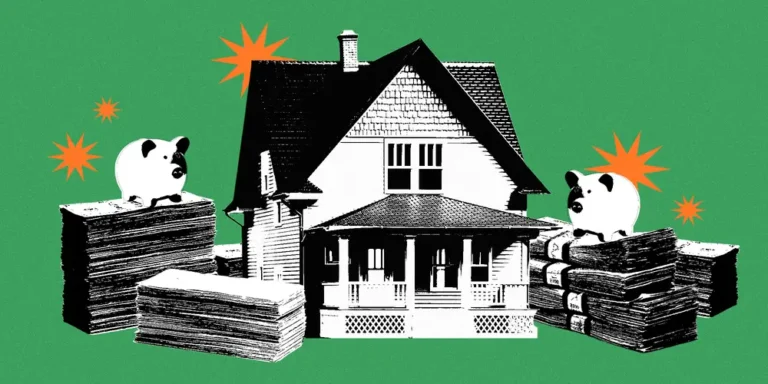What is a home appraisal? Everything you need to know

Bankrate.com (TNS) Libby Wells
A home appraisal is an important part of the home-buying process. If your home appraisal is lower than expected, it can cost you money and cause the entire transaction to be delayed, if not derailed.
In this section, we’ll explain what an appraisal is, why it’s necessary, and how it can affect your home loan.
What is a home appraisal?
A home appraisal is an objective, professional assessment of the value of a home or property.
When purchasing or selling a home, an appraisal ensures that the sale price is in line with fair market value. This ensures that the homebuyer does not overpay for the property and that the mortgage lender does not lend more than the property is worth. Because the home is the borrower’s collateral, the accuracy of the appraisal is critical.
Similarly, before extending a new loan to a homeowner who is refinancing their mortgage, the lender will have the home appraised to confirm its market value.
How do home appraisals work?
Once a lender’s order is received, a licensed appraiser will either schedule an in-person visit to the home or perform the appraisal remotely.
In addition to the physical evaluation of the property, the appraiser examines recent sales of comparable properties in the area, known as “comps.” This information could come from a variety of places, including the local multiple listing service (MLS), tax records, local real estate agents, and county court records.
The appraiser also considers the surrounding neighborhood. A newer home in a growing subdivision, for example, may appraise higher than an older home in a declining community.
Here’s a step-by-step breakdown of what to expect when getting a home appraisal:
— The appraisal is ordered by your lender. After your offer has been accepted and you’ve signed the purchase agreement, your lender will order an appraisal. If you’re refinancing, the appraisal is usually ordered after you apply for the new loan.
— The appraiser evaluates the property. To determine the value of the home, the appraiser will either conduct an on-site visit or a remote evaluation. A modest home may require only 15 to 30 minutes of in-person time; a larger home may require several hours.
— The appraiser examines comparables. Along with assessing the property, the appraiser will conduct a market analysis and review public records to determine the value of comparable properties and how they relate to the value of your home.
— The appraiser provides a report as well as a valuation. Once the information has been gathered, the appraiser will prepare a report for the lender, which is typically the Uniform Residential Appraisal Report. You are entitled to a free copy of this report as the borrower before the loan closes. Read it carefully and notify your lender if you believe it is incorrect or contains errors.
What does a home appraiser look for?
When determining the value of a home, appraisers consider a variety of factors. These could include:
— Residence location
— Location (Is it urban, suburban, or rural? Is it old or new and expanding?)
— Area (both of the house and of the lot)
— Residence layout
— Dangers such as floods or other adverse conditions
— The foundation, roof, walls, and overall structure’s age and condition
— Amenities like a fireplace, a deck, or a swimming pool
— Appliance condition
— Comparable home sales trends and price ranges in the neighborhood
The appraiser may also consider whether the property has any rental income or fees, such as homeowners association fees, as well as the cost to build a similar home from the ground up.
How an appraisal determines the value of a home
As the preceding list demonstrates, appraisals are based on a variety of factors, some of which may have nothing to do with the house itself. For example, if a neighborhood has a lot of distressed home sales, the value of other nearby homes (no matter how nice they are) tends to fall. In general, the appraiser uses the location, age, size, amenities, and condition of a home, as well as comps, to determine value.
What if the appraisal is incorrect?
A lower-than-expected home appraisal can complicate a home sale. If this occurs, the first step is to carefully review the appraisal report for errors that could account for the unexpected valuation.
If your sale contract includes an appraisal contingency, and the appraised value is less than the amount you agreed to pay, you can probably back out of the deal and receive your earnest money deposit back.
You could also decide to bargain with the seller for a price that is closer to the appraised value. If you still want the house and the seller is unwilling to negotiate, a lower appraised value may force you to put more money down to compensate.
If the appraisal is part of a loan refinance, you may be able to refinance by offering to make up the difference. You should also consider getting a second opinion if you believe the first appraiser made some factual errors, such as valuing the home on the assumption that it has fewer rooms or square footage than it actually does.
Preparing for a Home Appraisal
For first-time homebuyers
— Prepare for the worst-case scenario. Home purchase contracts frequently include an appraisal contingency that allows you to back out of the deal if the appraisal comes in lower than expected. Before you sign a contract on a house, make sure you understand the contingencies.
— Don’t feel obligated to make a higher bid. A competitive market can make it tempting to overpay for a home. If you don’t have the extra cash to cover the difference between a higher offer and the actual appraised value, don’t go overboard.
—Accept that you have no control over the outcome. As the buyer, you have little or no influence over the appraisal results. Make sure you have the necessary contingencies in place ahead of time so that if the valuation falls short of your expectations, you can walk away safely.
For those looking to refinance
— Create your own comparisons. Give the appraiser a list of properties in the area that you believe are similar to yours to help avoid a low appraisal. Your real estate agent may be able to assist, or you can look through online listings.
— Make a list of possible enhancements. Provide details about work completed on the property to get the most credit for renovations or repairs you’ve done. If possible, include photos and receipts.
— Clean and organize. If an appraiser is visiting your home, make an effort to make it look its best by tidying up and storing clutter out of sight. It couldn’t hurt to mow the lawn, rake the leaves, and clean up the flower beds.
Additional home valuation models
Appraisals are the most accurate method for determining the fair market value of a home, but they are not the only option.
Your real estate agent can prepare a comparative market analysis that looks at the local market and how your home compares. These are unquestionably useful tools, particularly early in the process.
Home appraisal vs. home inspection
Finally, appraisals and inspections both involve an outside professional evaluating the home, but they are not the same thing.
— Home appraisal: As previously stated, an appraisal determines the monetary value of a home. Mortgage lenders require it primarily as a security measure — to ensure that they are not lending you more than the house is worth.
— Home inspection: A home inspection, on the other hand, evaluates the condition of the home. This is done for your benefit as the buyer, and while it isn’t required, it is common practice for a reason. You don’t want to move in only to discover that the roof leaks the first time it rains, or that the heating system needs to be replaced when winter arrives. A home inspector will examine the property’s structure and major systems for safety and functionality, letting you know about any issues before they become yours. Buyers frequently use the inspection report as a negotiating tool, requesting that sellers cover the cost of necessary repairs.
Important takeaways
— A home appraisal is the process by which an objective professional evaluates a home to determine its value.
— Appraisals are frequently ordered by mortgage or refinance lenders during the underwriting process.
— Appraisers consider a variety of factors, including the age, size, condition, and location of the home.
(For more information, go to bankrate.com.)
Bankrate.com, 2023. Tribune Content Agency, LLC is in charge of distribution.






